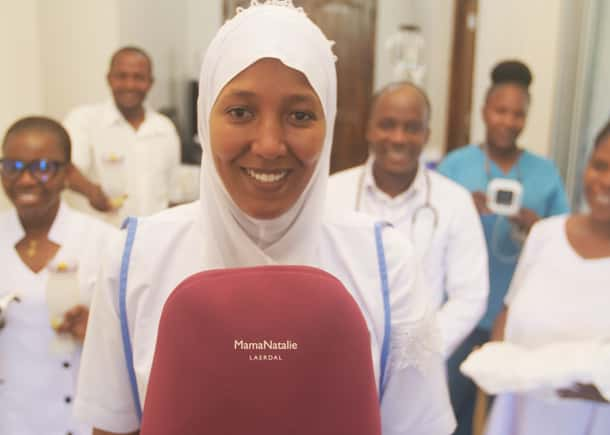FIGO and Laerdal Global Health Invite Applications for Birthing Simulators to Strengthen Maternal and Newborn Care


The International Federation of Gynecology and Obstetrics (FIGO), in partnership with Laerdal Global Health, has announced a new initiative aimed at strengthening maternal and newborn care in low- and middle-income countries. FIGO Member Societies in eligible regions are invited to apply for birthing simulators to support healthcare training and improve outcomes on the day of birth.
Each year, approximately 260,000 women die due to complications related to pregnancy and childbirth, while one million newborns lose their lives on the day they are born. The majority of these deaths occur in low-income countries and are often preventable with timely and skilled care.
To address this urgent issue, FIGO and Laerdal Global Health are offering MamaBirthie CS and MamaNatalie simulators, along with Helping Mothers and Babies Survive educational materials free of cost* to successful applicants. These tools are designed to provide hands-on, simulation-based training for healthcare professionals, enabling them to manage both routine deliveries and emergencies such as postpartum hemorrhage with greater confidence and competence.
The initiative is part of Laerdal’s Buy One, Gift One program, which aims to expand access to life-saving training equipment. Through this collaboration, FIGO and Laerdal hope to empower healthcare workers with the skills needed to reduce maternal and neonatal mortality.
“We are excited to announce this initiative at our World Congress in Cape Town. We know that regular, hands-on training is vital for learning and retaining skills, so increasing access to birthing simulators can really help improving care for mothers and newborns. We look forward to sharing the impact these simulators will make once they reach their destinations.”
Eligible projects must be based in countries where maternal mortality exceeds the Sustainable Development Goal (SDG) target of 70 deaths per 100,000 live births. Projects should focus on strengthening the health workforce, whether through pre-service or in-service training, and may target specific healthcare cadres or adopt a multidisciplinary approach.
*The receiver is responsible for the costs of bringing the products from Laerdal facility in Suzhou or Stavanger to the final destination where the products are to be delivered. This includes, but is not limited to shipping costs, declaration costs, local delivery cost (for CPT terms), destination duties, warehouse storage fee, demurrage fee, container return, damage cost, labor fee, pre-inspection certificate, certificate of origin (if applicable).